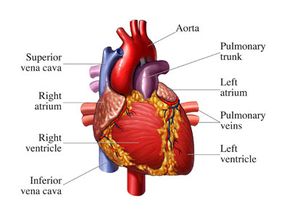You find yourself in tears for no good reason. Your outlook is gloomy for weeks at a time. Your family, friends and coworkers are all tiresome and taxing, and you could really do without them. Your daily routine is something you dread, and you'd rather just stay in bed. Nobody seems to understand how you feel, so you keep it to yourself. Occasionally it seems like it'd just be whole lot simpler if you weren't even alive.
If any of these symptoms sound familiar, then you're likely suffering from clinical depression. What's worse, that depression may be taking its toll on your heart.
Advertisement
Speculative links between heart disease and depression were first established in the late 1980s. Since then, further research has concluded that depression may be a contributing factor toward heart troubles. There are a few obvious reasons why people who are depressed are more likely to suffer from heart disease:
- Depressed people are more likely to smoke, drink excessive amounts of alcohol and avoid exercise.
- They're less likely to take heart medication if they already suffer from heart disease.
- Mental stress that comes with depression may increase plaque formation in the arteries.
- Depression could increase the production of free radicals and fatty acids, damaging the lining of the blood vessels.
The people most likely to suffer from depression linked to heart disease are the elderly. And sadly, they're the least likely to seek treatment for depression. Nineteen to 30 percent of people age 65 and older experience signs of depression [source: Elderweb]. Women are generally more depressed than men, and those living alone are more prone to be depressed. A study performed by Dr. Curt D. Furberg of Wake Forest University found that in 4,500 elderly participants with no history of heart disease, those who showed signs of depression had a 40 percent higher risk of developing coronary disease.
Another study in Baltimore, Md., found that depressed people of all ages are four times more likely to have a heart attack in the next 14 years following the study. When you consider that one in three Americans will die from some form of heart disease and that medical doctors often miss the diagnosis of depression, it's clear there's a real problem. Research is still in the early stages, but some researchers feel that depression may be as much of a factor in heart disease as high cholesterol and blood pressure.
The link between heart attacks and depression is clear -- what's fuzzy is which came first, the chicken or the egg? People that are depressed are more likely to have a heart attack, and heart attack victims are more likely to be depressed.
Advertisement





